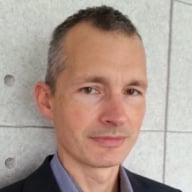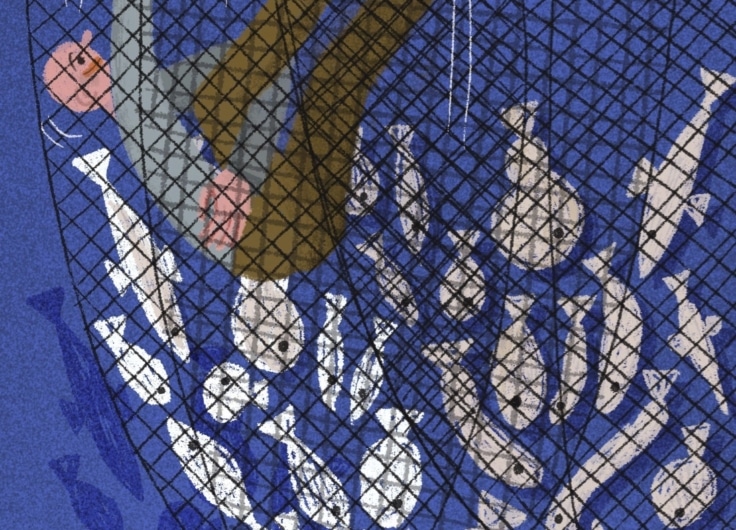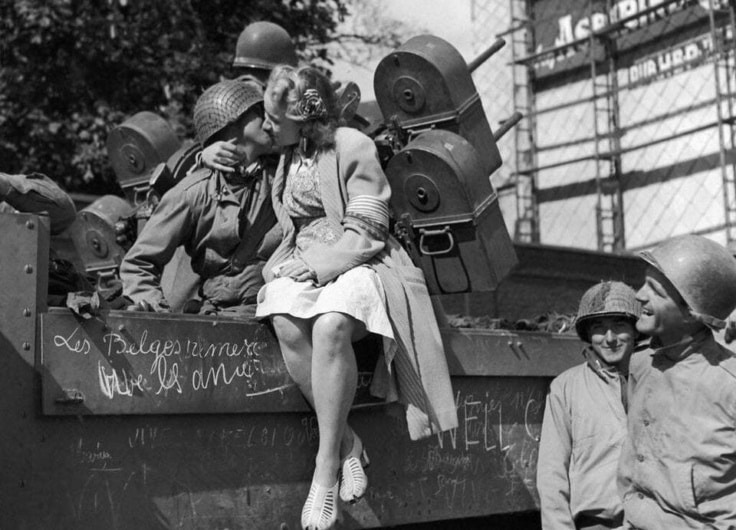The History of the Second World War Must Not Become a Safe Past
The unresolved past of the Second World War still casts its shadow over Belgium and the Netherlands. In 2020, remembrance has replaced history as the dominant way of working through our feelings about the war. This duty towards remembrance lulls us into a false sense of security, according to historian Nico Wouters. He believes that we need to face our duty to history, a history that is more grey than black-and-white.
In October 2014, the Francophone Socialist Party politician Laurette Onkelinkx heard ‘the sound of marching boots in the Wetstraat in Brussels’. The brand-new State Secretary Theo Francken had just attended the 90th birthday party for Bob Maes, former member of the collaborating Flemish National Association and founder of the extreme-right action group, the Flemish Militant Order. Francken’s fellow political crony, (and equally brand-new) Minister Jan Jambon, rushed to the rescue, but fumbled his communication about the collaboration. Perhaps Onkelinkx should also have bitten her tongue: her grandfather, Maurice Onkelinkx was apparently a wartime mayor in occupied Belgium.
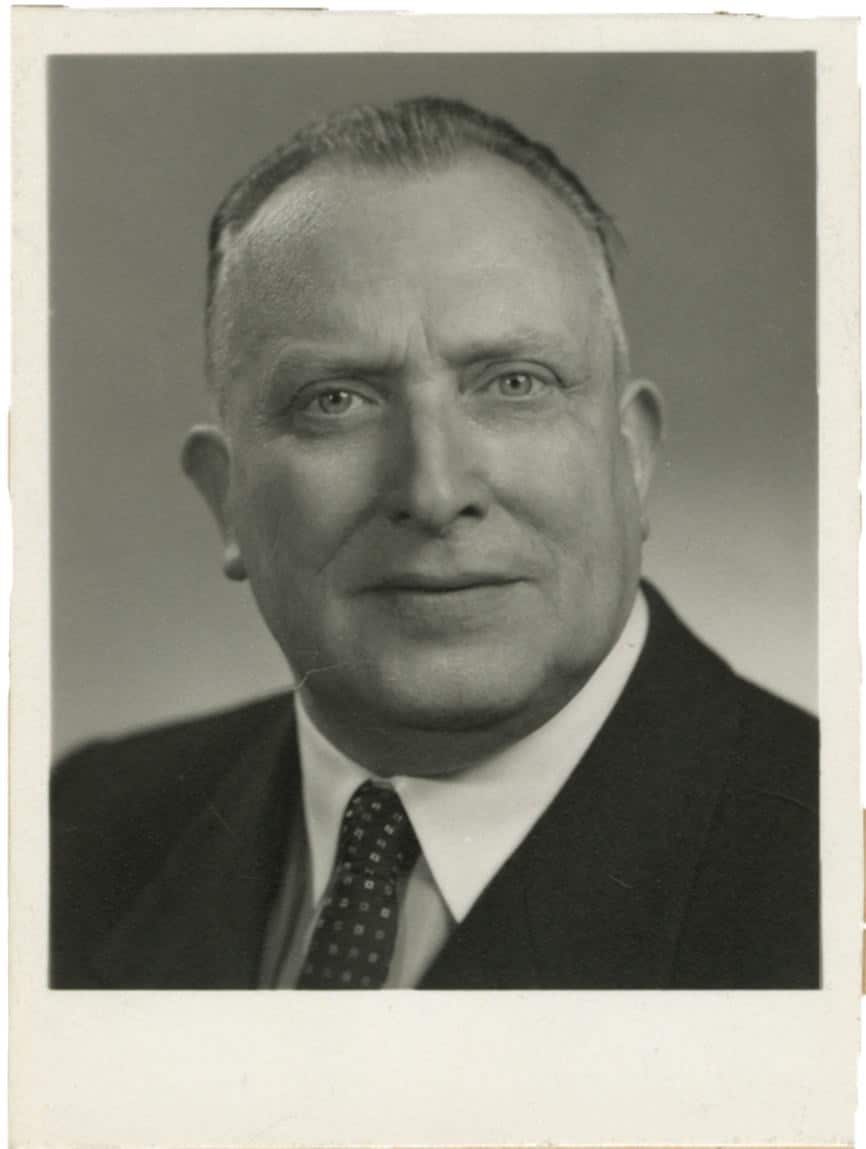 Leo Delwaide, the wartime mayor of Antwerp
Leo Delwaide, the wartime mayor of Antwerp© Felixarchiief
Five years later, the war was still in mind. In 2019, Antwerp Mayor Bart De Wever had to rename the Delwaide Dockyard in unseemly haste so as not to cast a shadow over his impending liberation party in September. The wartime mayor of Antwerp, Leo Delwaide, was discredited because of his active participation in the prosecution of Jews in 1942. Dries Van Langenhove, founder of the extreme right youth movement Schild & Vrienden had, according to a judge, to be ‘re-educated’ by a stint in the Dossin Barracks in Mechelen after being accused of violating the racism law. Two months later, N-VA faction leader Peter De Roover demanded an apology from the Pukkelpop Festival organisers because they had talked about ‘Flemish collaboration flags’. Clearly, the past has still not been fully processed.
Unresolved Past (1945-1991)
Unresolved Past is the iconic title of a book about repression written in 1991 by Luc Huyse and Steven Dhondt. That book began: ‘Belgium is sick because of the 1940s. It suffers from a neurosis born of collaboration and punishment.’ Today, Belgium wrestles neither more nor less with the Second World War than other countries, yet Huyse and Dhondt’s title was not so illogical.
Belgium is unique because, after 1945, no national war memory was created. In 1945, the Belgian elites wanted to forget the war as soon as possible. The idea of a big “Museum of the Two World Wars” was quietly dismissed. This means there is no active policy concerning political memory. The political inheritance of the resistance fades into the margins. It also means there has been mismanagement in the collection of archives and primary sources. These have been scattered and will, therefore, at least partially “disappear”.
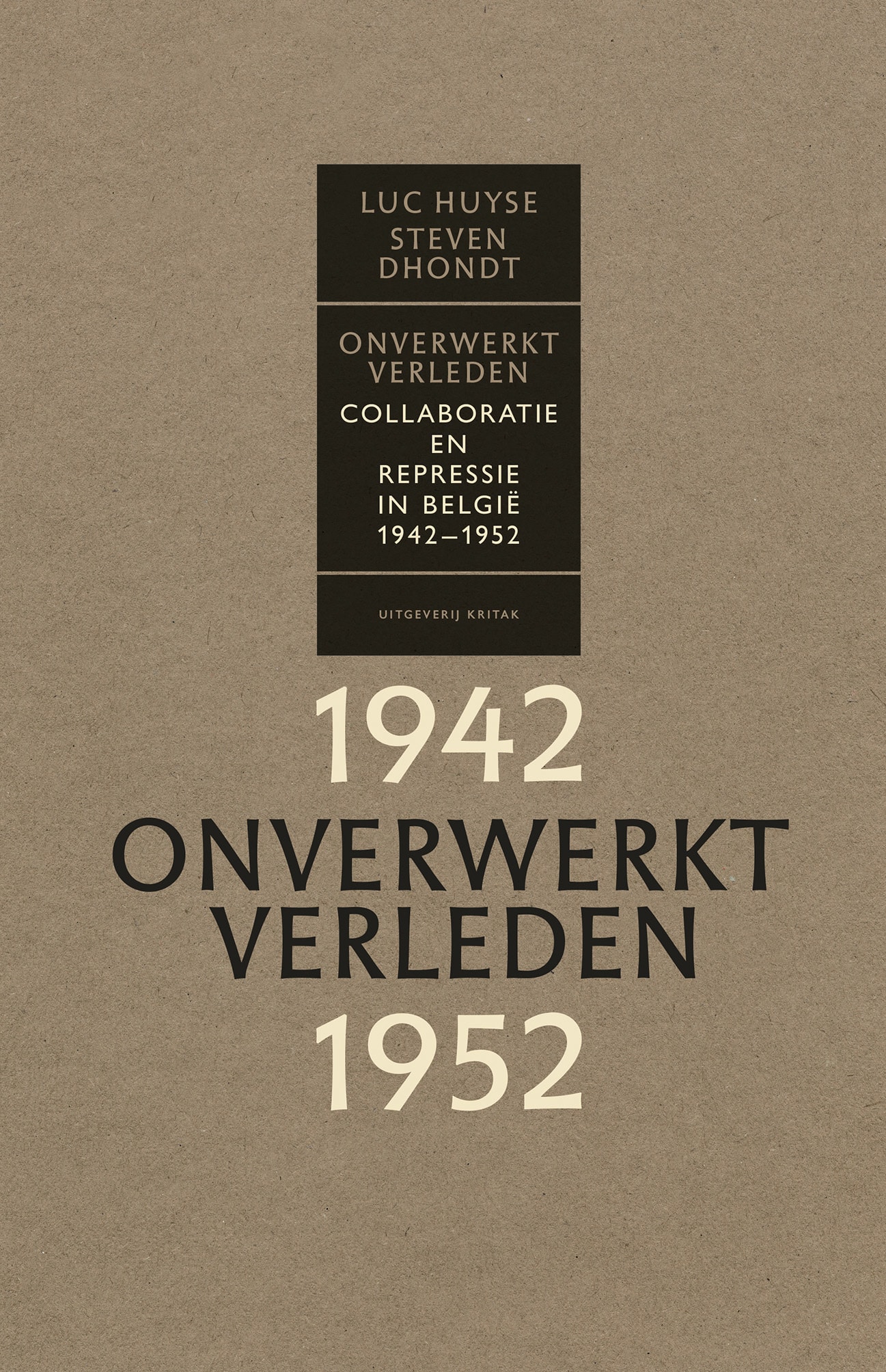
Without a strong state, interpretations about 1945 are wide open. This results in intense competition for political influence on issues such as repression, the ‘King’s Question’ (concerning demands for his abdication) and the Cold War. The Flemish Movement launched its own record of history comprised of half-truths and complete lies. A new genre of “repression literature” came into being and in the 1950s and 1960s, two political parties would make masterful use of it. The Flemish nationalist Volksunie (People’s Union, VU) systematically cultivated a picture of anti-Flemish repression to reach its goal: the end of Belgium. This picture became the norm in Flanders. Meanwhile, south of the linguistic border, the Front Démocratique des Francophones (Democratic Front of Francophones, FDF) cultivated the idea of “fascist Flanders.” In that story, the actions of the dominant Francophone population in Brussels and Belgium were illustrated as an anti-fascist, democratic struggle. The FDF aligned its political actions with the resistance against the Nazis in the Second World War.
The major national parties, the Christelijke Volkspartij (Christian People’s Party, CVP) and the Parti Socialiste
(Socialist Party, PS) take their lead from the VU and the FDF. Herein lies the basis of the famous “backwards memory” in Flanders and Wallonia. The amnesty files have grown into a crowbar that splits Belgium in two. The illustrious Belgian pacification policy can resolve every problem, except the war. This is because the amnesty discussion has no real content. No one in the 70s and 80s knew how many people were affected, what impact certain “purification measures” still have today or what people actually mean by “amnesty”. And it doesn’t really matter. Only political symbolism counts.
Maurice De Wilde’s 1980s television series De Nieuwe Orde (The New Order) is a perfect measure of how high emotions were running. All of a sudden, dormant disagreements arose in a public forum about the role of the king, the historical place of the Communists, the extreme right and the Belgian military; about socialists like Paul-Henri Spaak and Hendrik De Man, about post-war repression and amnesty; about the responsibility the Catholic Church had in the recruiting drive for the Eastern Front, the economic collaborators who never faced justice and the man-in-the-street, who always gets screwed.
Proper historiography in Belgium has come too late. That is essentially what Second World War expert Etienne Verhoeyen admitted in the introductory debate (broadcast on December 7, 1982) preceding the re-broadcasts of The New Order. He explained that an academic book read by about 2,000 people could not have any impact on the long-standing images formed over many years. The imagery of the 1970s was, indeed, already deeply rooted in the social consciousness.
The legacy of the Second World War is intricately linked to the fault lines that divide Belgium
One aspect of the problem is that access to information in Belgium is extremely problematic. Crucial archives are still inaccessible even decades after the war. It is significant – though not widely known – that the primary Second World War archival sources were only transferred to the State Archives after 2000, and only as an unintended consequence of the Copernicus Reform, a 1999 federal government initiative to modernise the administration. When the Belgian state, in need of money for these reforms, sells buildings, the materials suddenly – and inconveniently – appear as a mountain of wastepaper. Only then can the crucial war archives, many scattered to the four winds over decades, finally be accessed.
In other words, Huyse and Dhondt had a point in 1991. The legacy of the Second World War is intricately linked to the fault lines that divide Belgium. An unresolved past means that in 1991, deeply rooted historical myths continued to lead to fruitless conversations and intense political struggles.
(continue reading below illustration)
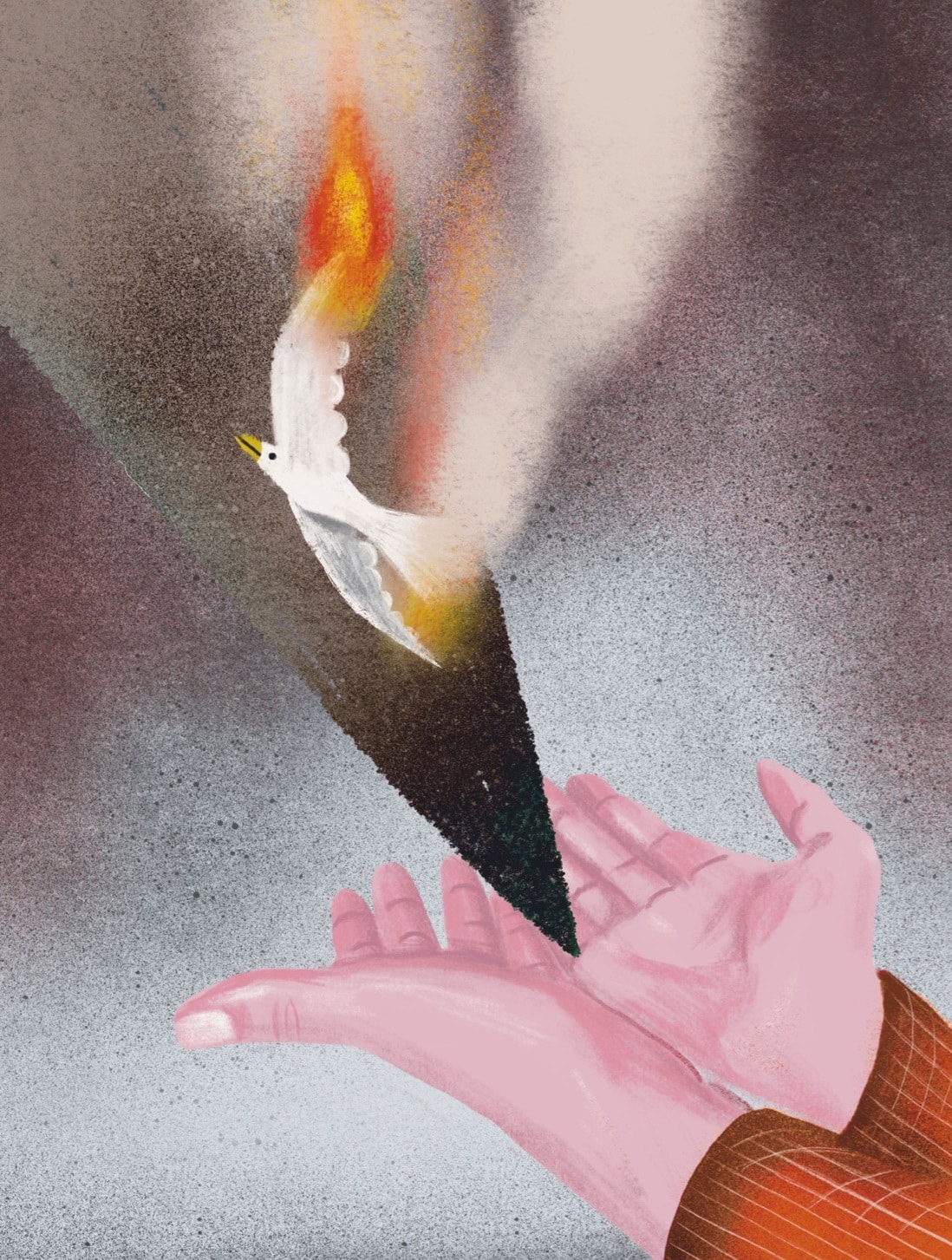
© Trui Chielens
Resolved Past (1991-2019)
Between 1991 and 2002 things changed rapidly. The shockwave of “Black Sunday” in 1991 that allowed the xenophobic Vlaams Blok (Flemish Block, VB) to break through changed the rules of the game. Support for the collaboration whitewash crumbled quickly. King Boudewijn launched a call for reconciliation in 1992; King Albert II did the same in 1994. But the distance in time means that the direct political significance of the war is diminishing. Meanwhile, the amnesty issue solves itself as the collaborators die off. The Holocaust – until then almost forgotten in Belgium – has become a central theme in Flanders.
The 50th anniversary remembrance of the end of the war in 1995 was the turning point. In the meantime, Belgium is no longer a unitary state with one central government. The Federal reforms of the Sint-Michielsakkord (St. Michael’s Agreement) in 1993 created the Flemish and Walloon governments and confirmed their autonomy. The political powers-that-be took the 1995 Commemorations firmly in hand. The Federal government under Dehaene and the Flemish and Francophone governments re-branded the war as a definitive social and moral benchmark. This has also formed a picture of 1945 as “zero point”. Since then, according to that picture, history has been constantly moving towards democracy, human rights, progress and equality, and international reconciliation and cooperation. Meanwhile, Communism has fallen and in 1992 Francis Fukuyama predicted the inescapable rise of liberal democracy. It was a nice idea but, over time, we have seen that it doesn’t ring true. (Incidentally, 1918 is a more important “zero point” than 1945, historically speaking.)
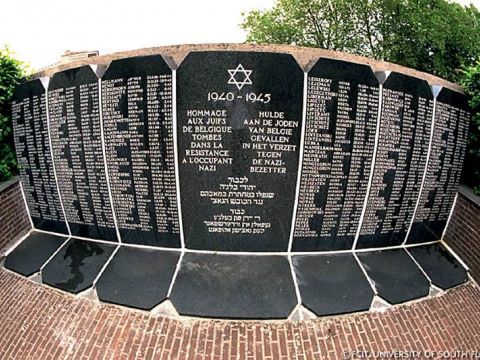 National Monument to the Jewish Martyrs in Brussels
National Monument to the Jewish Martyrs in Brussels© International Holocaust Remembrance Alliance
Now, the government is taking history on. The Belgian Holocaust Denial Law was passed in the symbolic commemorative year of 1995. Both the Flemish and Francophone governments launched their own new commemorative decrees, creating a unique moment when history and memory joined hands. Bruno De Wever’s influential book Greep naar de macht (Grasp for Power, 1994) was perfectly timed. His historical argument about the fascist nature of the pre-war Flemish National Association provided a historiographical foundation for the political revolution that was taking place in Flanders at the time.
Shortly afterwards, Vreemdelingen in een wereldstad (Strangers in a Global City, 2000) by Lieven Saerens, about the persecution of Jews in Antwerp, provided a similar platform for the growing awareness of the Holocaust. In those years, there was a climate of optimism. The (since destroyed) Flemish Suykerbuick Decree of 1998 (eliminating the social consequences for victims of repression and war victims) drew a curtain across the ‘old era’.
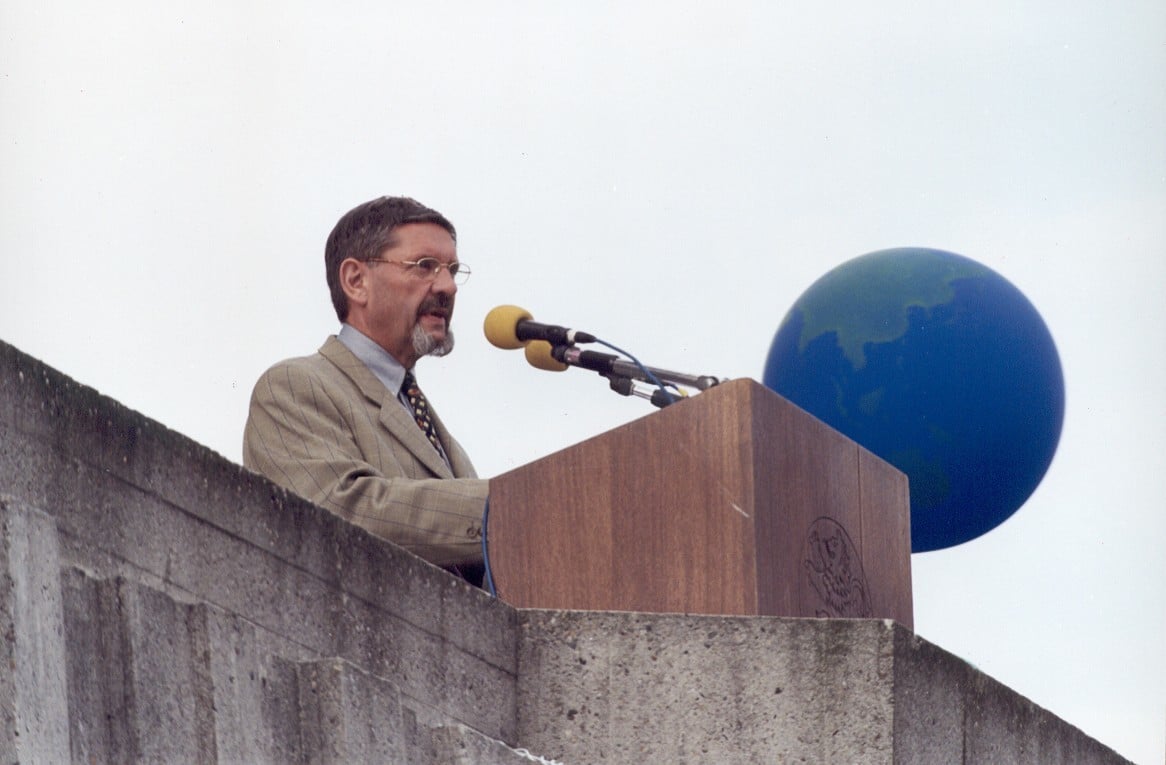 In 2000, Frans-Jos Verdoodt announced a historic “pardon” for the Flemish-national collaborators during the annual commemorative mass of the Flemish Movement during the IJzerbedevaart.
In 2000, Frans-Jos Verdoodt announced a historic “pardon” for the Flemish-national collaborators during the annual commemorative mass of the Flemish Movement during the IJzerbedevaart.© Museum aan de IJzer
The so-called Forward Call of 1999 ushered in the new era. The Forward Group is a pluralistic but predominantly left-wing collection of Flemish intellectuals that launched a reconciliation proposal with the pro-Flemish historian Frans-Jos Verdoodt as their most important spokesperson. In 2000, as vice-chairman of the IJzerbedevaartcomité (Iron Pilgrimage Committee), he announced an (unannounced) historic “pardon” for the Flemish-national collaborators during the annual commemorative mass of the Flemish Movement. Some of those present saw it as a joke, but the important and symbolic first step was taken.
In 2001, Flemish Minister Johan Sauwens was forced to resign because of his participation in a gathering of the Sint-Maartensfonds (St. Martin’s Foundation), an organisation of former Flemish Eastern Front Fighters. In the immediate aftermath, the liberal Flemish Prime Minister Patrick Dewael called the actions of Flemish Block group leader Filip Dewinter ‘genuine fascism’. This political drama drove Parliament to act: The Forward Group was officially sanctioned. The Flemish “Forwards Resolution”, passed in the Flemish Parliament on 20 March 2002, is based on their statements. The Flemish Resolution rejects collaboration and confirms the remembrance of the Second World War as an instrument in the fight against racism and xenophobia. It was a new picture. Within ten years, this image was turned on its head. The war past has been ‘processed’ and a new story of unity has emerged on the foundation of the great division. Finally, we have some official consensus about the past.
The Second World War has grown into a huge pedagogical project spearheaded by the Holocaust
The voluntary Federal governments of Verhofstadt (1999-2003, 2003-2004) embodied this new optimism. Patrick Dewael spoke in 1999 about the ‘duty of remembrance’ and launched the idea of a Holocaust Museum in Flanders. Since 2002, the obligation to remember, a moral concept, has become the core of a broader policy of remembrance. The past has been seen in terms of guilt and fines. Verhofstadt acknowledged the faults of the Belgians in the persecution of the Jews. In 2005 he apologised officially at the Yad Vashem Holocaust Memorial in Israel. In 2007, Patrick Janssens, the mayor of Antwerp made his apologies for the Jewish raids in his city – apologies that, incidentally, were shortly thereafter called ‘gratuitous’ by his successor, Bart De Wever. Prime Minister Elio Di Rupo added his apologies in 2012. The obligation to remember is a moral concept imposed as a kind of civic duty. The Second World War has grown into a huge pedagogical project spearheaded by the Holocaust. A story of unity has been imposed with the education of the populace as the central goal and policymakers, commemoration stakeholders and the tourism industry have joined forces to reach it.
Today, those who for decades have busied themselves with proper historiography are feeling uncomfortable. In an opinion piece on 25 January 2006 in Le Soir, De Morgen and De Standaard, nearly 100 historians and archivists warned of the dangers of replacing historiography with a duty of remembrance. History is at risk of being marginalised. This call was completely ignored and since then, historians have suffered from a loss of credibility. That is what the historical commission “Transit-Mechelen” discovered when, under the leadership of Bruno De Wever, they were asked by the Flemish government to draw up plans for a new Flemish Museum of the Holocaust in Mechelen.
In their naivete, the academics based their plans on the state of the historical research. In their proposal, the Jewish genocide was just one such event in an extensive history of Western modernism. They decided that other genocides, mass violence and mass murders should be integrated into the exhibits. They stepped on some toes with that idea. Groups that only wanted to focus on the Holocaust began to mobilise.
After a heated war of words, the Flemish Prime Minister Leterme intervened: he buried the proposal. De Wever and his cronies were persona non grata for a while. The historians were not sufficiently aware that the new game they were playing had become much more political than ever before. Bart De Wever, in the meantime, understood this very well. As mayor of Antwerp in 2015, he spoke at the ceremony commemorating the Jewish deportations from his city. Referring to his own grandfather’s collaborative past, the Flemish-national politician recognised that the Flemish-national collaboration during the war was ‘a terrible mistake on every level’. The mass commemorations of liberation that he patronised three years later were flawless, streamlined and completely free of controversy.
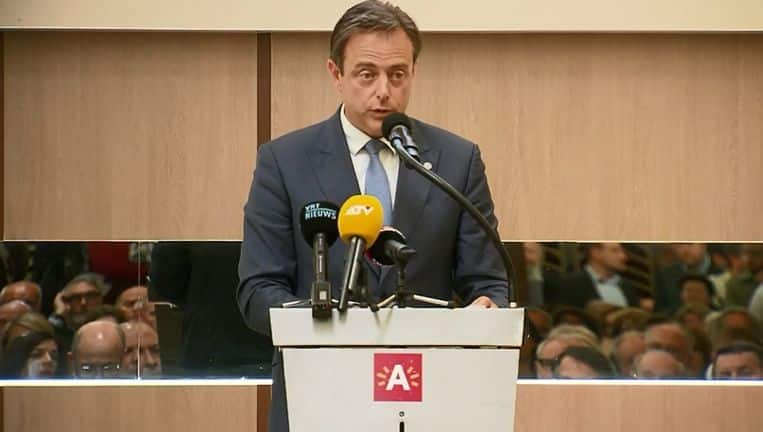 Referring to his own grandfather’s collaborative past, the Flemish National mayor of Antwerp, Bart De Wever, recognised that the Flemish-national collaboration during the war was ‘a terrible mistake on every level’.
Referring to his own grandfather’s collaborative past, the Flemish National mayor of Antwerp, Bart De Wever, recognised that the Flemish-national collaboration during the war was ‘a terrible mistake on every level’.Safe Past
There is of course something very positive to note. Today, the field of public history is both diverse and professional, providing new knowledge in an attractive manner to a large audience. For example, the new Second World War exhibit at the War Heritage Institute (formerly the Brussels Military Museum) that opened in May 2019 is both historically responsible and visually stimulating. The television series Kinderen van de collaboratie (Children of the Collaboration, 2017) and Kinderen van het verzet (Children of the Resistance, 2019) offer new insights concerning the human scale of events. Also, wondrously interesting are the dozens, perhaps hundreds, of people in Flanders today researching their own family histories. As far as I can see, it seems that these people are not solely focused on ideology. They want to utterly and honestly understand. They are looking for the “truth” about their grandparents. This micro-approach often results in a nuanced history. It provides context and colour for human decisions, sometimes good, sometimes bad. People in search of their family history today do not often crash into walls of silence and misunderstanding. There is no longer any taboo or stigma.
Memory has replaced history in our approach to the Second World War
But there is still a real reason for concern. Today, memory has replaced history in our approach to the Second World War. Memory and history are, in principle, perfectly complementary, but if memory pushes history aside and replaces it, a problem arises. The duty to remember leads to strong assumptions. First, that we know everything and must especially repeat the lessons we have already learned. Second, that history has to be immediately useful and socially relevant.
Third, that people mainly want to hear stories about ordinary people and not get bogged down with difficult or ambiguous questions. Why, then, should we invest in critical research? The answer has become quite clear in the remembrance year of 2020. While the centennial commemorations of the First World War in 2018 were accompanied by a great deal of new research and archival access, the focus in 2020 is clearly on the mass spectacle and a bite-sized message. With just a fraction of the money that will be spent on sound and light shows, or on historical re-enactments, some very necessary access and maintenance of the archives could have been financed. One less army tank or the dimming of a few lights would help the archival field immensely. These archives form the basis of all research, but they also do much more. Though we know a great deal about the collaboration, the repression and the Holocaust, there is an entire range of themes – political parties, forced employment, the supply chain and economic history, daily life, the German occupiers, the resistance, Congo during wartime, the state and administration… – that is under-researched, especially if we take a long-term perspective.
That nicely wrapped up unity story was not exactly the goal of Huyse and Dhondt in 1991, not at all. The opening quotation in Unresolved Past
– ‘Belgium is sick because of the 1940s. It suffers from a neurosis born of collaboration and punishment – is often not reproduced in its entirety. The second sentence is ‘Numerous myths stand in the way of coping with the past and must be replaced by a more factual account of what actually happened.’ The authors saw their book as ‘a contribution to the process of creating objectivity.’ That is, resolution through objective historiography.
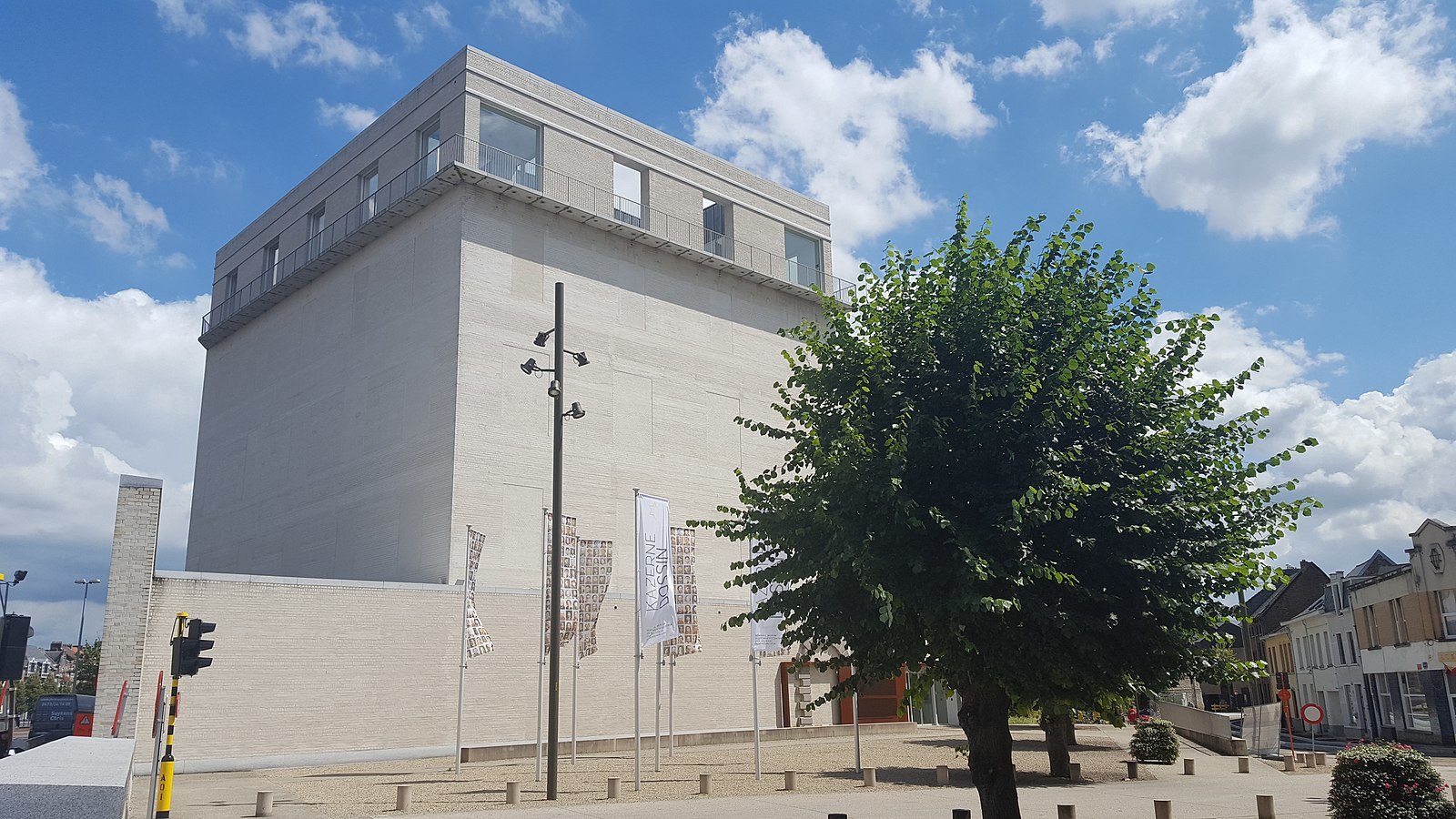 The Kazerne Dossin is a memorial, museum and documentation centre on holocaust and human rights in Mechelen, Belgium. It is established next to the former Mechelen transit camp from which Belgian Jews and Romani were sent to concentration camps during the Holocaust in World War II
The Kazerne Dossin is a memorial, museum and documentation centre on holocaust and human rights in Mechelen, Belgium. It is established next to the former Mechelen transit camp from which Belgian Jews and Romani were sent to concentration camps during the Holocaust in World War II© Wikipedia
We are further than ever from objectivity today. The old political divisions have returned. The handful of examples in my introduction make that clear enough. And that is the paradox. The obligation to remember has not erased the divisions. On the contrary, the political struggle has continued just under the surface. The war has become a piece of theatre in which the actors’ stage left and stage right follow their scripts perfectly. The war always generates press attention, ensures easy applause from the supporters and always hits the target. Today, the war is a measure of moral righteousness for the left and a confirmation of the comfortable Calimero-position of the right. The media feast on this and make a meal of any incidents.
You can see the results today. In his preface to the February 2019 edition of the prison diary of Belgian writer and collaborator Filip De Pillecyn, Jean-Pierre Rondas could easily mention once again ‘the contemporary apology of repression.’ In Tertio (3 April 2019) Bart Maddens equated recent scientific literature with ‘new myths’ without even blinking. Thirty years of research were laconically erased with the swipe of a pen. But on the other hand, the political and moral use of history is equally strong. Researcher Marc Verschooris explained in De Morgen (6 September 2019) why he rebuked historian Koen Aerts on account of his book Kinderen van de repressie (Children of the Repression): ‘I told him that his book about the repression was missing one sentence. The sentence ‘collaboration was wrong’ should have been categorically stated at the beginning. As if historians first have to deliver their political or moral credentials before they can do their job.
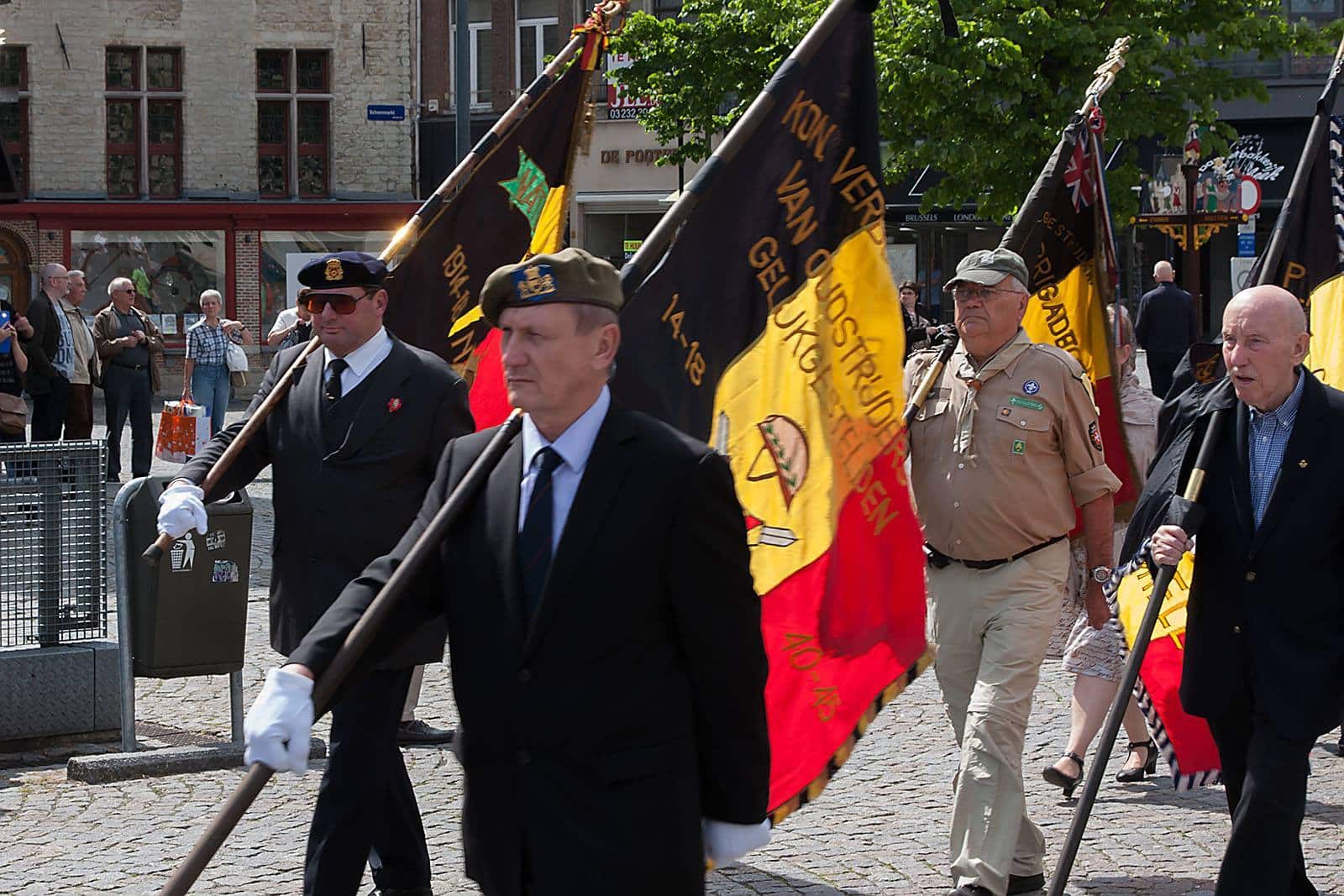
Another greater danger is that this obligation to remember gives us a false sense of security. The Second World War was the low point but today we have the solution. If we can just keep hammering the “right lessons” in, people will never again vote for the radical right. An example is the article written by the French-speaking psychologist Ariane Bazan in De Standaard on 5 September 2019: according to her, Flemish people vote for the N-VA and the Vlaams Blok because of their ‘unresolved war trauma’. Maybe it would be more useful to look at the socio-economic problems we are facing today to explain why people vote for extremists and populists rather than always dragging the war into the picture. Today, the legacy of the Second World War is used inappropriately by pseudo-experts to defend current viewpoints. The critical “con” vote is not discussed.
Therefore, I mean to plead the case of the duty to historiography. A mature, democratic culture of remembrance should not fear critical historiography but, rather, embrace it. For that is a history that dares to keep its distance and cannot be placed in the camps of the left or the right. That is a history that does not want to impose a single lesson but leaves space for dissent and differences of opinion. That is a history that recognises the past as often grey, rather than black or white. The history of the Second World War must not become a safe past.
This article is the English translation of Veilig Verleden? De herinnering aan de Tweede Wereldoorlog in België, published in the book Nulpunt 1945 (Zero Point 1945, Ons Erfdeel vzw, 2020).

